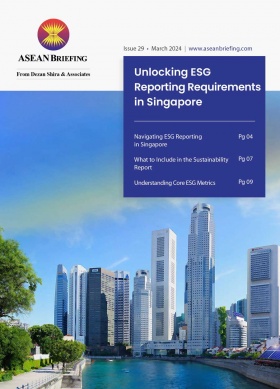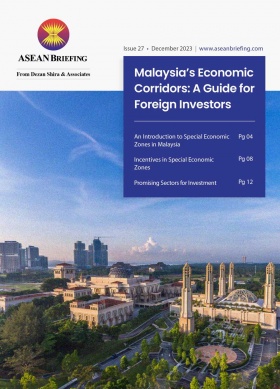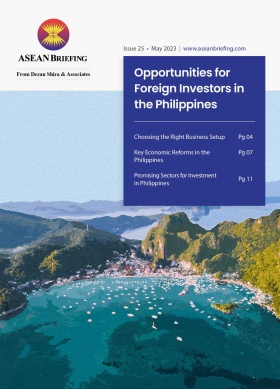Philippines Passes CREATE MORE Act, Proposing Amendments to Tax Incentives
On March 18, 2024, the Philippines House of Representatives passed a Bill amending the Corporate Recovery and Tax Incentives for Enterprises (CREATE) Act following the third reading. The amendment (HB 9794), which has been called the CREATE MORE bill, makes key amendments and enhancements to the tax regime introduced in the CREATE Act to clear up inconsistencies and ambiguities, and importantly, to bring the Philippines tax regime in line with the OECD’s Pillar Two Global Minimum Tax (GMT).
The CREATE Act, which came into effect in April 2021, grants tax relief for companies in financial need in the wake of the COVID-19 pandemic, while also seeking to provide transparent tax provisions and further increase the competitiveness of the Philippines. The Act was formulated upon previous tax reforms to make the Philippines an attractive investment destination.
The CREATE MORE Act seeks to improve the current regulations by enhancing the tax and administrative incentives available to companies – including foreign companies – and clarifying rules on implementing VAT incentives introduced under the previous Act.
The CREATE MORE bill was submitted to the Philippine Senate on March 19, 2024, for further deliberation.
Aligning the CREATE Act incentives with the Pillar Two rules
One of the major proposed amendments in the CREATE MORE Bill is allowing companies that choose to be under the enhanced deduction regime (EDR) to be subject to a 20 percent tax rate on taxable income derived from registered projects or activities during each taxable year.
The EDR is an incentive introduced in the CREATE Act that allows export companies, domestic market companies, and critical domestic market companies to deduct a range of assets and expenses from their taxable income, including a 100 percent additional deduction of research and development (R&D) expenses and training expenses and a 50 percent additional deduction on domestic input expenses and power expenses, among others although the percentages are subject to change under the new amendment.
The CREATE Act also introduced a four to seven-year tax holiday for eligible export companies or domestic market companies. This tax holiday could then be followed by one of the following incentives:
- A Special Corporate Income Tax (SCIT) Rate of 5 percent for a period of 10 years for export and domestic companies with a minimum investment capital of PHP 500 million (US$8.67 million) and certain domestic market companies engaged in activities deemed “critical”, in lieu of all national and local taxes; or
- The EDR incentive for a period of ten years.
However, the 5 percent SCIT rate falls far below the 15 percent GMT mandated by the OECD’s Pillar Two rules. Under these rules, to which the Philippines has subscribed, multinational enterprises with a global turnover of at least €750 million (US$815 million) that choose the SCIT route will be required to pay top-up taxes to meet the 15 percent GMT.
For this reason, the CREATE MORE Bill proposes lowering the standard CIT rate for companies employing the EDR to incentivize them to choose this route.
The CREATE MORE bill notes that MNEs that fall under the scope of the Pillar Two rules that have already been enjoying the SCIT can choose to either continue receiving the SCIT or switch to the EDR.
The EDR and the 20 percent CIT rate will be available to both domestic and foreign companies registered in the Philippines under the CREATE MORE Bill, which has changed the eligible companies from “export enterprise and domestic market enterprise” to simply “registered business enterprise”.The CREATE MORE Bill also proposes raising the percentages on some deductible items under the EDR as a further incentive. For instance, it raises the additional deduction of power expenses from 50 percent to 100 percent and adds new deduction items such as additional deductions of expenses relating to trade fairs and exhibitions.
Introducing a standard registered business tax in lieu of local taxes
The CREATE MORE bill proposes implementing a “registered business enterprise (RBE) local tax” at the rate of up to 2 percent of gross sales for companies that are eligible for the tax holiday or EDR. Companies eligible for this tax rate would then be exempt from all other local taxes, including the following:
- Tax on printing and publication business;
- Franchise tax;
- Amusement tax;
- Annual fixed tax for every delivery truck or van of manufacturers or producers, wholesalers, dealers, or retailers of certain products;
- Local business tax;
- Fees for sealing and licensing of weights and measures;
- Regulatory, building, inspection, or permit fees and charges imposed by local government units;
- Taxes levied by provinces, cities, or municipalities on business;
- Barangay taxes, fees, charges, fines, and other financial impositions; and
- Real property taxes, except on property owned by developers.
Note that companies opting for the SCIT rate will only be able to enjoy the RBE local tax after the period in which they can enjoy the SCIT is up (10 years).
The RBE local tax will be implemented for the duration of the tax holiday or EDR, as long as the business meets the conditions for registration in the region. The relevant investment promotion agency (IPA) or Bureau of Internal Revenue will be responsible for collecting the taxes
Proposal to implement special visa incentives
The CREATE MORE bill authorizes IPAs to issue various types of special visas to help attract highly skilled foreign talent. The visas are as follows:
- Special skills visa for foreign nationals who possess highly specialized skills as determined to be necessary or strategic by the concerned IPA in the operation of registered business enterprises; and
- Executive working visa for foreign nationals holding executive positions, including presidents, vice presidents, treasurers, managers, or their equivalents, and to non-resident aliens employed in supervisory, technical, and advisory positions.
The bill states that the IPA involved will be required to formulate the relevant application guidelines along with the Bureau of Immigration, as well as the monitoring the visa guarantees. These visas must be sponsored by registered businesses, and the businesses must require the expertise of the applicants.
Clarifying the implementation of VAT incentive policies
Among the incentives provided in the 2021 CREATE Act is a value-added tax (VAT) exemption on importation and VAT zero-rating on local purchases. However, the rules governing this incentive are rather vague and up to interpretation, which has led to issues in its implementation.
The CREATE MORE bill significantly expands upon the implementation rules of the VAT exemption on imported products and VAT zero-rating on local purchases.
First, it specifies that the policy will only be applicable to foods and services that are directly attributable to the registered project or activity of a registered company and that these goods and services include:
- Janitorial services;
- Security services;
- Financial services;
- Consultancy services;
- Marketing ad promotion; and
- Administrative operations such as human resources, legal, and accounting:
The project or activity must also be registered with the IPA. The eligible goods and services will be subject to the following conditions:
- VAT exemption for the sale of goods or services to a company whose total sales are exported;
- A 0 percent VAT rate on the sale of goods or services by a VAT-registered seller to registered export enterprises, regardless of location, if export sales are less than 100 percent of total annual production;
- A 0 percent VAT rate on the sale and delivery of goods to registered enterprises within a separate customs territory;
- The sale, transfer, or disposal of previously VAT-exempt imported capital equipment, raw materials, spare parts, and accessories shall be subject to the following conditions:
- 0 percent VAT on the transaction if the purchaser is a registered export enterprise, regardless of location;
- 12 percent VAT on the transaction based on the net book value of the capital equipment, raw materials, spare parts, or accessories if the seller is a registered domestic market enterprise, regardless of location; and
- 0 percent VAT on the transaction if the seller is a registered domestic market enterprise and the purchaser is a registered export enterprise, regardless of location.
Note that only domestic companies that have investment capital of at least PHP 50 billion or its equivalent in US dollars (currently approximately US$866.74 million) and are import-substituting or catering to non-residents can enjoy the 0 percent VAT on local purchases and VAT exemption on importation of capital equipment, raw materials, spare parts, or accessories.
About Us
ASEAN Briefing is produced by Dezan Shira & Associates. The firm assists foreign investors throughout Asia and maintains offices throughout ASEAN, including in Singapore, Hanoi, Ho Chi Minh City, and Da Nang in Vietnam, in addition to Jakarta, in Indonesia. We also have partner firms in Malaysia, the Philippines, and Thailand as well as our practices in China and India. Please contact us at asean@dezshira.com or visit our website at www.dezshira.com.








